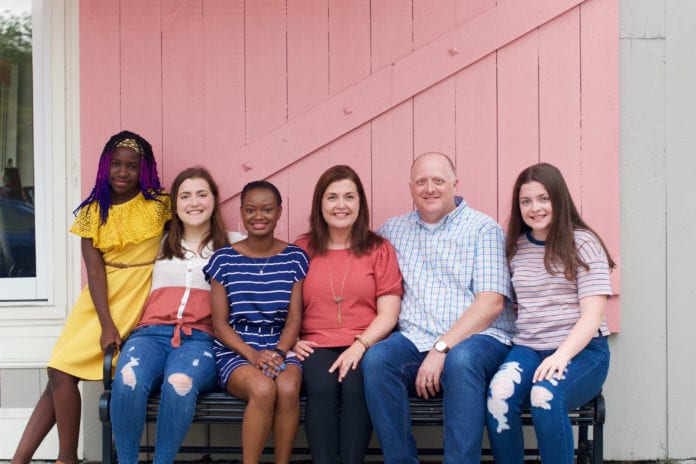MEPA, she told RNS, has made it easier for Black children to be adopted by prohibiting discrimination, not training. “There is nothing in the MEPA that prevents people from having conversations about race, she said.
Bult, a former Trump administration staffer, said Bethany is not trying to reverse MEPA, but the agency believes the law should return to its original form, with the permissible consideration language restored. He also said Bethany remains fully committed to transracial adoption.
Kris Nohe, a writer and consultant in Virginia, said she and her husband had very little training in transracial adoption when their children Nicholas and Rachel, who are Black, came to live with them. The couple called a Black friend for some advice about bath time.
The friend, Nohe recalled, told her to hold off until she could come over and lend a hand.
“That was our first introduction into ‘this is going to be different,’” she said.
Some friends and neighbors were supportive. Others were not. Having Black children, Nohe said, made her aware of how much she did not know.
“You’re going to need to step out of your comfort zone and face issues you’ve blissfully been allowed to ignore,” she said.
Nicholas Nohe, who is 18, said he always knew his parents had a different skin color than he did. But he didn’t realize those differences mattered, at least to the outside world, until he was about 10. Some of his friends didn’t think his parents were his “real parents,” and he felt he had to prove he belonged in his own family at times.
Today, he said, things are better. But still, there are reminders he is different from his parents and his white brothers.
“It’s still a struggle for me,” he said. “Just going to restaurants, where I’ll take my brothers out to eat and they’ll always try to seat them first. We’ll have to say, ‘no, we’re actually all together.’”
University of Oklahoma sociologist Samuel Perry interviewed hundreds of adoptive families for his 2017 book “Growing God’s Family,” which looks at evangelicals and adoption. Most of the families he spoke with, Perry said, did not take a “colorblind approach” to issues of race.
Perry, who grew up in a family with two adopted Black sisters, said in recent years that evangelicals have become more aware of the need for open discussions about the role race plays in adoption. Children need love and stability, he said, but they also need to know about how race affects the world.
Those discussions are often pragmatic, he said, rather than theoretical or ideological.
“What they are talking about is the reality of driving while Black on a Thursday or being followed around in the grocery store,” he said.
Thais Carter, a consultant from Princeton, New Jersey, said conversations about race are a normal part of every life in transracial adoption. Carter and her husband, Heath, a Princeton Theological Seminary professor, have three boys, including their son Isaiah.
“There’s no hiding the fact I didn’t give birth to Isaiah,” she said.
Melissa Busby, an adoptive mom who is married to a pastor, said learning about racial issues is one of “the most loving things” a parent in a transracial family can do.
“Sometimes as Christians, we think good intentions, love and prayers are all we need,” said Busby, who has two adopted children from Uganda. “But good intentions don’t always make for good parenting.”
Transracial families are often reminded the world is not colorblind.
Chalonda and Sidney Dwyer of Kalamazoo, Michigan, have found themselves having to explain their family to outsiders. The Dwyers, who are Black, have three young white children.
That has led to a lot of stares and questions. At times, Chalonda Dwyer said, people assume she is the babysitter.
“Well, actually,” she tells them, “they are mine.”
The Dwyers, who are Seventh-day Adventists, said when they first set out to adopt, they were asked if they preferred children who were Black.
“Being Christians, we felt strongly God was going to send us the right kids,” she said.
The Dwyers said becoming parents to three children at the same time was a challenge. Their three kids, who are biological siblings, were placed with them in 2016, and they have all learned from each other.
Love and their faith have sustained them, said Sidney Dwyer. He and his wife would encourage any family who hopes to adopt to consider transracial adoption.
“Sometimes people look at us like, ‘why are they calling you Mom and Dad,’” he said. “That doesn’t really bother us because our kids love us and we love our kids.”
This article originally appeared here.

